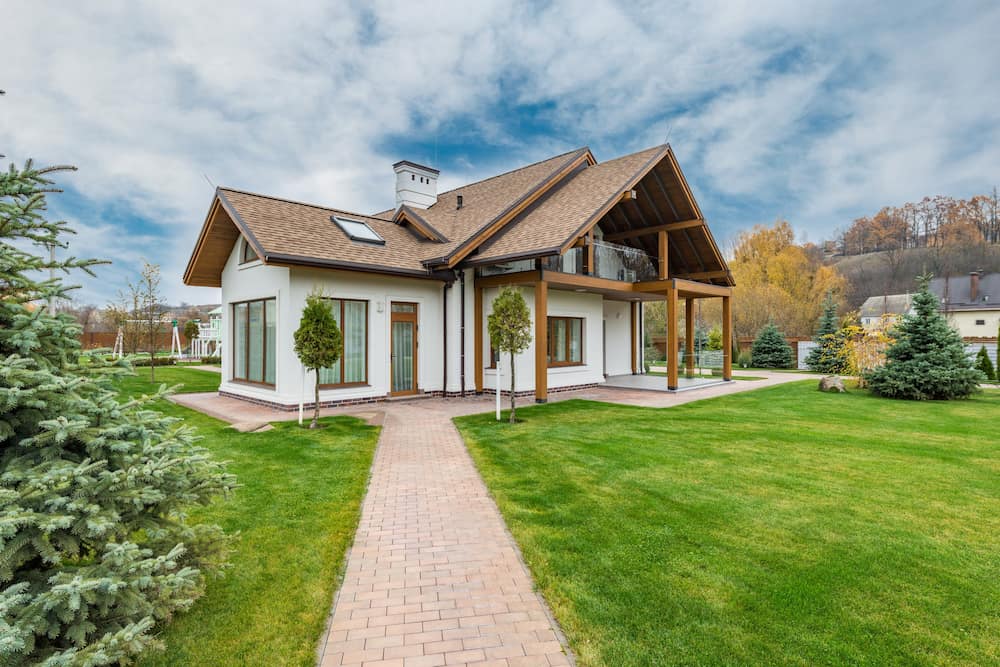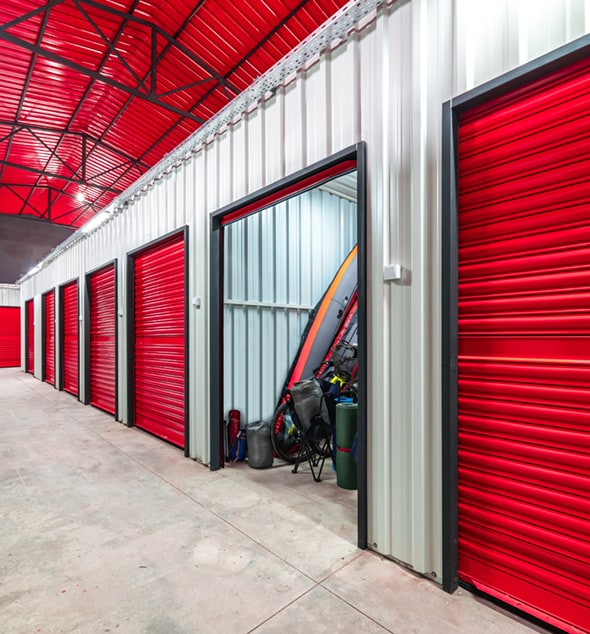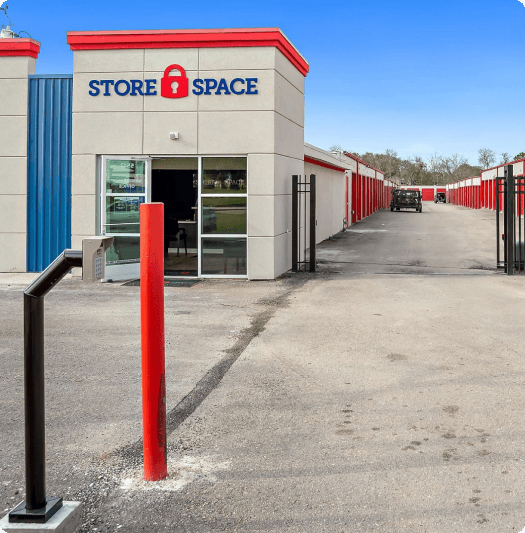Why Downsizing is Freeing: 5 Healthy Benefits of Downsizing Your House

While at first it may seem counterproductive to sell your forever home, there are quite a few benefits of downsizing your home. Living smaller often means living simpler, getting more out of your space and feeling more connected to the environment in which you inhabit.
Down below we will discuss more of the pros and cons of downsizing, when is a good time to downsize your home, and, hopefully, provide you with enough information to answer the burning question: Should I downsize my home? Should I downsize to a condo?
So, dust off those coffee table design books, channel Marie Kondo, and begin to explore the world of downsizing!
5 Benefits of Downsizing Your Home
While each one of these five benefits is composed of several smaller, individual up-sides, together they comprise a strong argument for downsizing. Continue reading to see if moving into a smaller home is right for you and your family members.
1. Functional living & calculated savings
Living in a larger home is a goal shared by many, but is such a decision always compatible with your lifestyle? After all, having more space seems essential to crafting an environment suitable for a variety of hobbies. More is more, right? Maybe not quite. What about this familiar scenario?
You just went to Ikea for the fourth time this week. You were attempting to fill the far corner of your living room with Swedish accouterments. You know the space. The four-foot-by-four-foot quadrant between your reading chair and your sofa. You haven’t known how to properly utilize the space since you bought your home five years ago. But it seemed like a good idea to purchase something. The space just looked too empty. So, you bought a black nondescript floor lamp and went home and placed it in the four-foot-by-four-foot spot.
Was there not enough light penetrating to this specific quadrant from the overhead light fixture?
No, that can’t be it. You placed your reading chair nearby because the lighting is perfect.
Oh, so maybe the floor lamp is just easier to turn on and off while you are enjoying a film or your favorite television show?
No, switching the lamp on and off still requires you to get off the couch. Plus, when it is turned on it throws a significant glare onto your television.
So, why did you buy the lamp in the first place?
We all have purchased a piece of furniture, electronic or home appliance simply because we “needed to fill space.” This tendency explains why a larger house doesn’t exactly equate to living larger.
Stop purchasing unnecessary furniture and accessories by downsizing. By deciding to live in a smaller home, you are not only giving yourself the freedom to start anew, but you are also taking the first step to living more harmoniously. Of course, if you decide to downsize, you will have less space than you did prior to making the decision. However, what some may see as a “con” oftentimes turns into a “pro.”
By living smaller, every purchasing decision you make will have to be thought out and calculated. This will not only save you money, but this may also lead to you living a more fulfilled life; especially since you are surrounded by hand-picked items which fulfill specific functions.
2. A greener existence
Let’s face it, through construction, maintenance and everyday use most of our homes develop large carbon footprints. And that is not even counting all the possessions we buy to fill them. By selling your home, downsizing and cutting down on your square footage, you will also be reducing your carbon footprint and decreasing the energy needed to power your home.
If you are curious to find out exactly how much living smaller will reduce your carbon footprint and increase your home’s energy efficiency, you should check out this guide from the Department of Energy and this article on tiny homes with a tinier footprint.
Water usage, heating and air conditioning costs, and electricity usage all typically decrease when living smaller. The exact nature of these conditions and the overall size of your carbon footprint will still largely depend upon you and your household’s habits. However, by choosing to downsize, you are taking a big first step towards living a greener existence.
3. Tiny home, minimal stress
While tidiness savants like Marie Kondo have contributed to a recent influx in dedicated minimalists, you don’t have to be a minimalist to downsize. Well, at least you don’t have to be the version of a minimalist you are picturing in your head right now.
To a host of people, minimalism is less about living with fewer resources and more about living a purposeful and fulfilled life. At first, it may be misconstrued that the number of items in one’s life determines if one is living a minimal lifestyle. However, the filter is often reversed. It is not the items in a minimalist’s environment that determine their proclivity for purpose, but rather their proclivity for a purpose that determines what items they decide they need in their life.
Furthermore, living smaller does not necessarily require you to even dive this far into minimalistic ethics. Downsizing simply requires one to take stock of the various items in their life. One may even ask, “does this spark joy?” when appraising each item. By having less space, you may need to be stricter with your purchases. What constitutes a necessary accessory or piece of furniture will likely change as you begin to live smaller. By having this conversation with yourself you are starting down a path towards less stress and a more purposeful existence.
4. Easily embrace the travel bug
Have you considered how much work your current house requires when you leave town? You probably must make sure certain areas of your home are monitored by security surveillance, keep up with landscaping and yard maintenance, and develop a heating and air conditioning plan to make sure pipes don’t freeze.
Traveling while owning a smaller home will still require some planning and forethought. However, it will be much easier when you don’t have to worry about heating your three-story mansion, mowing your two-acre lawn or monitoring the grounds for potential intruders. The savings you will achieve by living smaller could also nicely contribute to your travel fund.
5. Pay off your debt with tiny living
Chances are, downsizing your home will allow you to begin saving money on your monthly mortgage. These savings can be used in a variety of ways, but for most downsizers paying off their debt is an attractive characteristic of smaller living.
When deciding if downsizing is for you, you should calculate how much you expect to save per month. Make sure to factor in expenses such as your mortgage, utilities, design costs, capital gains taxes and anything else you can think of. Once you determine an accurate figure, it won’t be hard to see the benefits of downsizing. You should be able to make significant progress in paying off your debt in no time with tiny living.
FAQs
Q: Where do I start when downsizing?
A: The first step to downsizing is to set a timeline for your project and develop specific goals. Once you develop your goals, creating a sorting system is the next step. This sorting system should allow you to effectively place your possessions into three categories: keep, toss and come back to.
Q: When is a good time to downsize my house?
A: The best time to downsize your home is when you feel ready. Other factors, such as housing market trends and your overall month-to-month costs, may contribute to the timing of your decision. However, choosing to downsize is a big decision and you should make sure you and your household are ready for such a move.
Q: How do I downsize my home?
A: Downsizing is a process. A good tip is to start downsizing slowly and give yourself enough time to not rush any major decisions. Planning your new space and taking stock of your current possessions are two effective steps in the downsizing process.
Q: Is it worth it to downsize house?
A: Downsizing is an effective decision to lower utility bills, decrease mortgage payments and limit overall stress. Individuals who have downsized in the past often state that the decision was pivotal to the curation of their current lifestyle.
Recap: Downsizing for the Future!
Downsizing can be an effective strategy for individuals looking to limit their carbon footprint and for those looking to live a more fulfilled life. Here are the five benefits of downsizing we previously discussed.
Downsizing is a process, and it is not always in your interest to jump into it headfirst, right away. Give yourself time once you decide to downsize and enlist Store Space to help! Selling your home? FSBO? Learn how to stage your home on a budget.
We offer secure, professional storage at affordable low prices. If you are looking to move as a step in the downsizing process, you should check out our blog articles on moving across the country affordably and 11 Moving Essentials You Can’t Forget For an Awesome Move.
Also, use our storage location finder to locate the Store Space Self Storage facility nearest to you!







